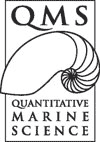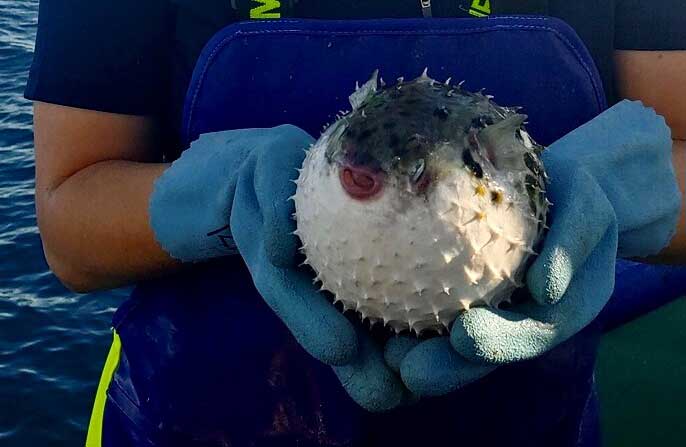

Improving understanding of the biology and developing assessment methods for emerging fish stocks in southeastern Australia
Rikki Taylor QMS PhD Candidate
Project Title: Improving understanding of the biology and developing assessment methods for emerging fish stocks in south eastern Australia
Supervisors: Katie Cresswell (primary IMAS), Alyssa Marshell (IMAS), Paul Burch (CSIRO), Nicholas Hill (SPC)
Project overview:
South eastern Australia is a hotspot of global warming with changes in the biological processes of fish species within the region, including growth rates, age at maturity, fecundity and natural mortality expected. Many fish stocks on the continental shelf and slope of the region have experienced declines in production over the past two decades. Ecosystem change is likely to result in new species emerging in importance for existing fisheries as food webs shift and the productivity of species also shifts as biological processes change. These changes are already apparent in the Southern and Eastern Scalefish and Shark Fishery (SESSF), which spans Commonwealth waters from southern Queensland to Western Australia with catches of Frostfish, Jack Mackerel and Ocean Jackets increasing substantially in recent years. Identifying these emerging species, developing data collection frameworks and robust assessment methodologies based on good understanding of the biology of these species is essential for supporting the sustainable management of these species, The project will contribute to ensuring that management is proactive and responsive to changing conditions as species transition from emerging to target species within the fishery.
Aims/Objectives
Rikki’s Background
Rikki completed a Masters in Marine Science at the University of Auckland in 2018. Her thesis developed fish-based indicators for ecosystem-based management of the Chatham Rise trawl fishery from 24 years of trawl survey data of over 200 species. Following this, she worked as a Fisheries Technician at the National Institute for Water and Atmosphere (NIWA) for five years. Her work involved leading and coordinating commercial catch sampling, participating in numerous scientific fisheries surveys around the New Zealand EEZ including the subantarctic region, and joining marine biosecurity surveys around ports. In addition to fieldwork, Rikki also coordinated a national network of recreational fishing interviewers for the North Island, managed the onsite laboratory, processed and read otoliths for inshore species, and managed the delivery of biological and fishery data for multiple sampling projects.
By taking up this project in the SESSF region, Rikki will leverage her scientific experience and technical expertise in NZ to build on fisheries research in Australia. Rikki will develop skills in field sampling design and execution, reproductive biology and ageing methodology and the development and application of stock assessment methods.
Methods
The initial phase of the project will use clustering methods to identify emerging fish stocks in the SESSF. Data collection focusing on these species will be facilitated through the AFMA Observer Program and via RV Investigator voyages undertaken as part of the South East Australia Marine Ecosystem Study (SEA-MES). Key biological parameters associated with age, maturity and growth will be determined via a laboratory component. Spatio-temporal variability in biological parameters will be quantified using novel methods (e.g. GAMs). Data-poor to data-moderate assessments will be developed and tested using simulation and management strategy evaluation.
This project is supported by two related CSIRO led projects
Proposed Chapters
References
